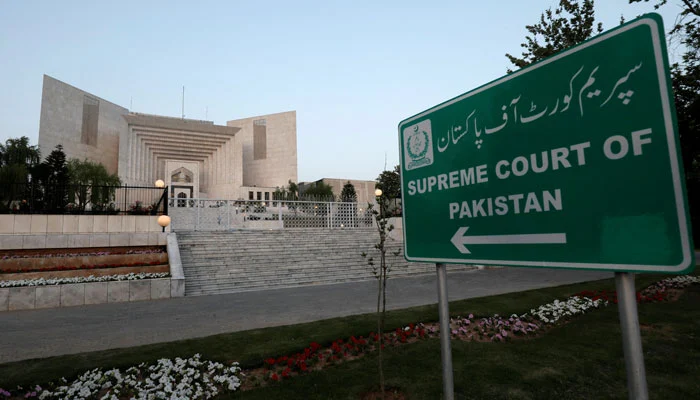In its lifetime disqualification ruling, the Supreme Court not only addressed constitutional issues pertaining to Article 62(1)(f) of the Constitution regarding the disqualification period, but it also acknowledged the legislative authority of parliament and carefully overturned previous rulings made in the Sami Ullah Baloch case in 2018. The Court further clarified that its role is to interpret the Constitution; it should not be reading into or rewriting it.
The provisions governing the qualifications and disqualifications of parliamentarians were historically ascertainable, objective, and contained succinct language that primarily addressed the age, solvency, citizenship, and mental capacity of the individual in question. These provisions were found in the constitutions of 1956, 1962, and the current 1973 Constitution.
On the other hand, 67 of the 280 provisions of the Constitution were amended when General Ziaul Haq issued the Revival of the Constitution of 1973 Order (RCO) on March 2, 1985.
With new requirements for the applicant’s reputation and personal qualities, such as “good character,” “adequate knowledge of Islamic teachings,” “sagacious, righteous, and non-profligate and honest and ameen,” and refusal to be convicted of a crime involving “moral turpitude,” this step represented the biggest shift in Pakistani history in a single blow.
Article 62 stipulates that an individual must be a citizen of Pakistan to be eligible for election or selection as a member of Majlis-e-Shoora (Parliament); for the National Assembly, this means that the individual must be at least twenty years of age.”He is, in the case of the Senate, at least thirty years old, and he is registered to vote in any province, the federal capital, or the federally administered tribal areas, from which he wishes to seek membership; he is of good character and is not known for breaking Islamic injunctions; he has sufficient knowledge of Islamic teachings and practices obligatory duties prescribed by Islam as well as refraining from major sins; he is sagacious, righteous and non-profligate, honest and ameen, barring a court ruling to the contrary; he has not, since Pakistan’s founding, worked against the nation’s integrity or opposed its ideology.”
Article 63 addresses the disqualification of legislators from taking part in elections. It makes reference to Articles 63(1)(g), (1)(h), (i)(c), etc., which provide a five-year period of ineligibility even in cases where the person is charged with endangering Pakistan’s integrity and sovereignty.
The Election Act of 2017 was modified by the parliament in 2023, bringing the disqualification period down to five years. The amendment also specifies that where no such procedure, manner, or duration has been provided for, the Act’s provisions shall apply. The procedure, manner, and duration of disqualifications and qualifications shall be as expressly provided for in pertinent sections of Articles 62 and 63 of the Constitution. There was no challenge to this new amendment in the SC.
Without a doubt, the legislatures did not intentionally construct any of the disqualification periods listed in Article 62 of the constitution, with the exception of those that are described in Article 63(1)(G) and (H). In several rulings on this topic since 2008, the Supreme Court has given different interpretations of these provisions, especially Article 62(1)(f). These rulings include PLD 2023 SC 42, 2023 SCMR 370, PLD 2020 SC 137, PLD 2015 SC 275, PLD 2020 SC 591, 2018 SCMR 2121, PLD 2018 SC 578, PLD 2018 SC 405, PLD 2016 SC 657, 2013 SCMR 1655, and PLD 2020 SC 591.
Critics were thus able to draw attention to the fact that Article 62 has been used as a tool for political victimization.
It was also usual for rivals to use arbitrary interpretations or legal technicalities to single out and disqualify their rivals, which led to accusations that the legal system was being used politically. Thus, the interpretation and application of Article 62 have led to legal challenges and judicial cases, making the voting process more convoluted and often unclear.
To address the anomalies of the previously referred judgments regarding the period of disqualification related to Article 62(1)(f) of the constitution, the Supreme Court assembled a larger bench with seven members to reexamine its earlier rulings and the new legislation introduced as Section 232 of the Election Act 2017.
The Elections Act, 2017’s Section 232(2), has been upheld by the attorney general of Pakistan, the advocates general of every province, and the Islamabad Capital Territory, all of whom have testified before the bench many times.
Seven different constitutional elements have been covered in this ruling. Initially, Article 62(1)(f) lacks self-executiveness since it doesn’t specify the court of law that will issue the declaration it mentions, nor does it specify the procedure for doing so or the length of any potential disqualification.
No law outlines the procedure, process, or means by which the fundamental rights to a fair trial and due process provided by Article 10A of the Constitution must be complied with.
It is outside the scope of Article 62(1)(f) to interpret it in the manner that was previously done, which amounts to reading into the Constitution a provision that, through an implied declaration of a civil jurisdiction court, decides certain civil rights and obligations of the parties and permanently disqualifies the individual. This reading of the Constitution also violates the principle of harmonious interpretation of its provisions, as it abridgments citizens’ fundamental right to run for office and vote for the candidate of their choice, as guaranteed by Article 17 of the Constitution, absent reasonable limitations imposed by law.







